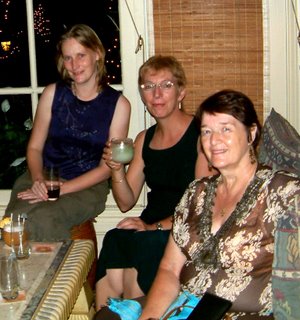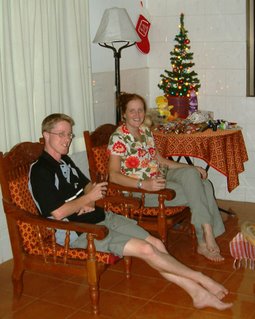
Christmas passes by unnoticed by most Cambodians, but, thanks to a fundraising campaign in Sussex organised by the fabulous Amy Hindhaugh, some very poor local people will be having a happy new year. Amy collected $900 from staff of Hastings and Rother PCT in the run-up to Christmas. Back here in Kampong Thom, my CoDeC colleagues, who know the local needs best, considered how the money could most effectively be used to benefit a poor community. We decided that the greatest need was for water wells to be built in a nearby village which has no clean water during several months of the dry season. The current water supply is in the form of shallow, open wells which are not able to provide year-round water. The $900 will pay for several very deep, covered pump wells to be installed.

The PCT staff members’ generosity will change lives. People will be able to drink clean rather than polluted water, meaning that they will be healthier and thus able to maintain their livelihoods. They will be able to grow crops to prevent their families and animals becoming ill or even dying of starvation. Once the wells are installed, I will put photos on a future blog posting.
I’ve discovered that there are lots of other ways that I would be able to spend small amounts of money to directly benefit local communities. The ultimate aim of third world development is to help people to help themselves rather than just give them money, but there are some basic things out of their reach which they need before they can start helping themselves. While I’m not here to be a fundraiser, if you would like to give any money (no matter how small) directly to desperately needy people, whilst ensuring that none of your hard earned cash is swallowed up in admin costs, mis-management, inappropriate causes, corruption or duplication of aid, then I would be pleased to organise this for you and let you know how your money has been spent. Contact me by e-mail:
alisonincambodia@yahoo.co.uk.







